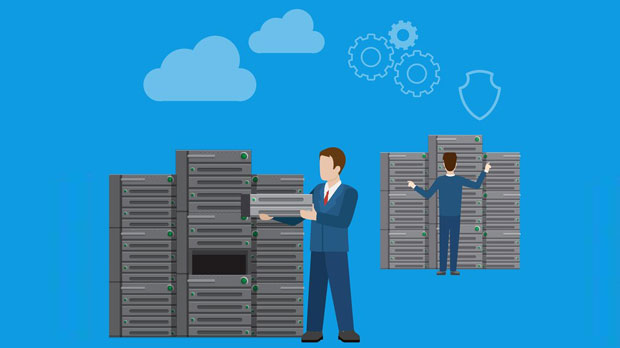In today’s digital landscape, ensuring a secure and private browsing experience is paramount for users. Among the various tools available to maintain privacy, proxies play a crucial role. Two prominent proxy services, PYPROXY and Piratebay Proxy, are often compared for their residential service node coverage across different countries. While both services are designed to provide users with anonymity, they differ in terms of geographical coverage and the number of countries they operate in. This article aims to compare these two services, focusing on which service has a wider range of country coverage for residential nodes, and how this impacts users' experiences. Introduction to Proxy Services and Their RoleProxy services act as intermediaries between the user and the internet. They serve various purposes such as enhancing privacy, circumventing geographic restrictions, and masking a user's IP address. The importance of proxy services, particularly residential proxies, has grown significantly, as they provide a higher level of anonymity compared to traditional datacenter proxies. Residential proxies, in particular, are more difficult to detect because they route internet traffic through real residential IP addresses.Pyproxy and Piratebay Proxy are two such services, both of which provide residential proxies. However, the question arises: which of these services offers a more extensive residential service node coverage across countries?Comparing the Coverage: Pyproxy vs Piratebay ProxyWhen comparing the two services, it’s essential to examine the geographical spread of their residential proxies, i.e., which countries they cover and how this affects their effectiveness. The extent of coverage determines not only the number of available IP addresses but also the service’s ability to mask users’ real locations across different regions.Pyproxy: A Global Reach with Strategic Country CoveragePyproxy is known for its robust infrastructure and wide global reach. This service boasts a presence in numerous countries, making it a competitive option for users looking for anonymity and access to specific geographic regions. Typically, Pyproxy offers proxies in over 50 countries, providing users with a substantial pool of IP addresses that span across North America, Europe, Asia, and parts of Oceania.The key advantage of Pyproxy lies in its distribution of nodes across both developed and developing nations. This allows users to select proxies from a diverse range of geographical locations, making it an attractive option for users requiring access to various content restricted by country. Moreover, the service often provides localized IP addresses, enhancing users' ability to interact with websites and services as if they were browsing from a specific location.Piratebay Proxy: A Focused but Extensive CoverageOn the other hand, Piratebay Proxy has a slightly more focused approach in its node coverage. While the service also offers proxies in a variety of countries, its geographical range is often more selective. Piratebay Proxy tends to concentrate its efforts in countries where demand for proxies is higher, such as the United States, the United Kingdom, and several European nations. However, its coverage outside of these regions may be limited compared to Pyproxy.One strength of Piratebay Proxy is its focus on high-traffic regions, which translates to faster speeds and more stable connections in those countries. Users in the US and parts of Europe, in particular, often find the Piratebay Proxy service to be highly effective for streaming and bypassing regional restrictions. However, users in less-popular regions may find fewer available residential nodes, limiting their proxy options.Impact of Country Coverage on User ExperienceThe number of countries covered by a proxy service significantly impacts the user experience. For users in countries with strong internet censorship or geo-blocked content, a larger coverage area is beneficial. For example, Pyproxy’s extensive presence across North America, Europe, and parts of Asia allows users from restricted regions to access services as though they were located in a free-access country.Moreover, the broader the coverage, the more likely users can find proxies with local IP addresses, which is especially useful for activities like online shopping, local content consumption, and social media engagement. In contrast, Piratebay Proxy, with its more selective node coverage, may be better suited for users primarily focused on high-traffic regions.Which Service is More Suitable for Specific Use Cases?To better understand the practical implications of Pyproxy and Piratebay Proxy, let’s explore specific use cases:1. Streaming Content from Various Regions: For users looking to access streaming content from multiple countries, Pyproxy’s extensive country coverage is advantageous. Whether it’s Netflix in the US, BBC iPlayer in the UK, or Hulu in Japan, Pyproxy allows users to switch between a wide range of IPs across different locations, ensuring better access to diverse content libraries.2. Bypassing Regional Censorship: In countries with stringent internet censorship, users may require proxies that can access content from countries with fewer restrictions. In this case, Pyproxy’s ability to offer a larger number of country nodes can be a crucial advantage, providing users with more opportunities to bypass censorship and access uncensored content.3. Localized Marketing and SEO: For businesses or marketers targeting specific countries, having a localized IP address is essential. In this regard, Pyproxy’s broad node coverage is helpful, allowing users to select proxies from specific regions to conduct localized searches, gather data, or perform SEO activities that appear to be originating from a specific country.4. Performance and Speed: While Piratebay Proxy offers a more selective country coverage, its performance in high-demand regions such as the US and the UK can be superior. Users who primarily require fast speeds and stable connections for activities like streaming or gaming in these countries may find Piratebay Proxy to be a more efficient option.Conclusion: Which Proxy Service Provides More Value?In conclusion, when evaluating Pyproxy and Piratebay Proxy in terms of residential service node coverage, Pyproxy generally offers more extensive coverage across a wider range of countries. This makes it a more versatile option for users who require proxies from various geographic locations, particularly those who need to bypass regional censorship, access content across borders, or perform localized marketing efforts.However, Piratebay Proxy can still be a valuable choice for users who focus on high-traffic regions where speed and stability are crucial. Its selective coverage in specific countries ensures optimal performance in those areas.Ultimately, the decision between Pyproxy and Piratebay Proxy will depend on the user’s specific needs, whether it’s broad geographical access or optimized performance in certain regions. Both services have their strengths, but for users seeking greater global access, Pyproxy is likely to be the better choice.
Oct 27, 2025


































































